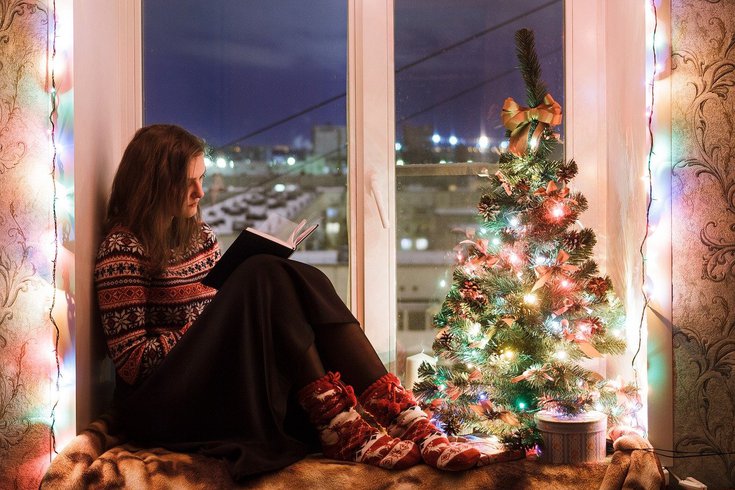
December 07, 2020
 Алексей Смирнов/Pixabay
Алексей Смирнов/Pixabay
'Feeling lonely is normal during the holidays even without COVID-19,' says psychologist Shanny Shmuel. 'But this year it is definitely heightened.'
The COVID-19 pandemic has many people facing the holiday season without the physical presence of their loved ones.
Philadelphia is under tight restrictions until New Year's Day to stem the spread of the coronavirus in the city. Residents are prohibited from mingling indoors – in both public and private spaces – with people who are not part of their household.
Restrictions are strict in other parts of the United States, too. So what does this mean for all the Hanukkah, Christmas and Kwanzaa celebrations?
While people will miss out on their traditional extended family gatherings, people who live alone will have it the hardest this year. Health experts are concerned that the restrictions during the holiday season may increase feelings of loneliness and depression.
The good news is that being alone isn't the same as feeling lonely, and there are creative ways to celebrate with loved ones – even if you aren't all in the same room.
"Being alone is a physical state," Dr. Marisa Rogers, executive medical director of Oak Street Health told PhillyVoice. "A lot of people can be alone without feeling lonely. Loneliness is the feeling of not having good, quality relationships in your life."
People experience loneliness when they feel they don't belong to a community or have social support, she explained. This is social isolation, and it can affect both physical and mental health.
"Feeling lonely is normal during the holidays even without COVID-19. But this year it is definitely heightened," added Shanny Shmuel, a certified school psychologist with Philly Psychology, LLC. "Creating connections virtually will be important."
The two experts offered some creative ways to make the holiday season a time of togetherness while keeping everyone safe and healthy.
Consider government restrictions and your feelings when making holiday plans. Does being around people outside your household – even outdoors – make you anxious right now? Stick to what makes you most comfortable, the experts said.
Reach out early to make plans and be flexible. The weather or new restrictions may throw a monkey wrench in your initial plans. Remember the holidays are never perfect any way, Shmuel said.
Think about the traditions you enjoy and how you can share them virtually. Is a big family dinner the centerpiece of your holiday celebration? Have everyone prepare a smaller version and eat it at the same time while connected virtually, Rogers suggested.
Don't want to miss out on the looks on your loved ones' faces when they open up gifts? Mail them ahead of time and then schedule a time to open them together virtually.
Shmuel suggested people even add a special twist to holiday baking this year by holding a bake-off competition and asking everyone to send samples to taste.
For outdoor fun, spend a night checking out Christmas decorations, an activity that can de done safely at a proper social distance. Or plan a socially-distanced walk with a friend or a cold picnic lunch.
If you just don't have a lot access to others right now, concentrate on taking care of yourself, Shmuel added. Pick up a new hobby or look for volunteer opportunities.
Helping others also makes us feel better, she said. Check on neighbors who might be navigating all this by themselves.
"Often we focus on what we can’t do, instead of focusing on what we can do," Rogers added. "Call each other, produce joy – give to others, help reframe this."
Despite people's best efforts to stay connected, it is inevitable that at some point in the holiday season many of us will feel lonely. Don't be afraid to ask for help, the experts said. Let loved ones know that you are lonely, because they are probably feeling the same way.
"It is important to not ignore your feelings. Acknowledge that you are upset or angry, but try not to dwell on it," Rogers said. "Focusing on what we can do to decrease isolation can be very helpful."
Self-care is especially important right now, they said. Make sure you are eating right, getting enough sleep and staying active.
"Deconditioning can happen when you don’t move your body," Rogers explained. "Be creative. What do I have in my home that can I use to exercise?"
It is important to be intentional in your day, she added. Give it structure if you aren't working or going to school.
Shmuel also cautioned against too much social media use during the holiday season. Seeing people post about gathering with friends and family can make people feel worse.
"Remember what you see on social media isn't their everyday lives," she said. "Your life doesn't have to look like everybody else's."
Many people may be coping with grief over the loss of a loved one. Watch yourself and loved ones for signs of depression – feeling withdrawn or disconnected, not enjoying things you used to enjoy, lack of motivation, sleep problems, fatigue, poor appetite, difficulty concentrating and irritability.
Seek professional help if you become worried that loneliness or grief has led to depression. The city's Healthy Minds Philly initiative offers resources, including support groups. Counseling services are also available.
Anyone experiencing a mental health emergency should contact the Philadelphia Crisis Line at (215) 685-6440 or the National Suicide Prevention Lifeline at (800) 273-8255.